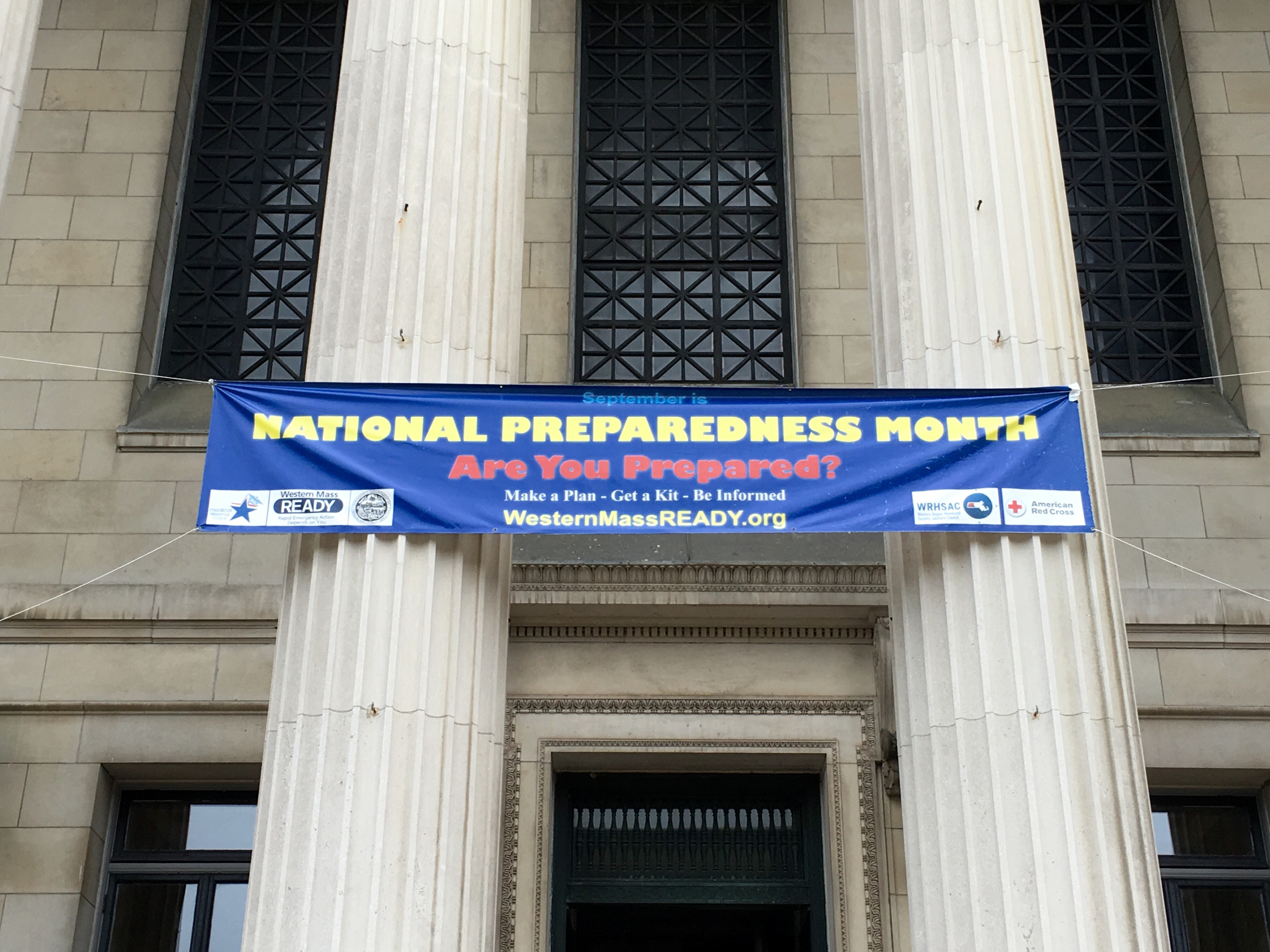Emergency Preparedness Month provides an opportunity to raise awareness of the important work being done to make sure our communities are safe, healthy, and ready for public health emergencies and/or disasters.
The theme “Don’t Wait. Communicate. Make Your Emergency Plan Today” is the continuing theme from 2015. Often families are not with their loved ones when catastrophe strikes, so having up-to-date contact information for those you need to get in touch with during a public health emergency and/or disaster is critical. It is also possible to collect names and addresses of your neighbors and talking to them one by one so that if something should happen you can call different neighbors and ask what can you do or how can you help.
Ask about plans at the places where family spends the most time: work, school and other places you frequent. If none exist, consider volunteering to help develop one. You will be better prepared to safely reunite your family and loved ones during an emergency if you think ahead, and communicate with others in advance.
Over 60 percent of Americans say preparation for natural or man-made disasters is very important to them, however, only a staggering 17 percent of Americans claim to be prepared for an emergency situation, according to a new survey commissioned by the Ad Council.
Disasters can have a major impact on the workplace, both for the people who work there, and to workplace operations. After a disaster, workplaces cannot recover without their people and people cannot recover without a job to go back to.
Organizations can have tremendous influence on their personnel when it comes to preparing for a disaster. When employers encourage employees to be prepared for disasters, employees are 75 percent more likely to take action. And with more than 63 percent of the US population aged 16 or older in the labor force, the workplace is one of the most effective environments for educating and encouraging people to take steps to be ready for disasters, which includes being fully age-appropriate immunized – flu, pneumonia, HPV, MMR, etc.
Mayor Domenic J. Sarno said, “Unfortunately, as we have dealt with here in our own Springfield, it is better to be prepared and forewarned, than not. I commend Commissioner Helen Caulton-Harris, Emergency Preparedness Director Bob Hassett, all our brave and dedicated police, firefighters, first responders and associated city departments for always being there in our time of need.”
“Emergencies can happen at any time,” said Helen Caulton-Harris, Springfield Health Commissioner. “Taking a few simple steps now to prepare yourself, your family and your community makes the entire community more resilient and better able to respond to emergency events.” All residents, Don’t Wait. Communicate. Make Your Emergency Plan Today.
For further information contact:
Public Health Emergency Preparedness & Response Coordinator
Tony L. Pettaway
(413) 750-2696 tpettaway@springfieldcityhall.com
Ready.gov/prepare
Cdc.gov//yme/transmission/index.html
National Weather Services
https://www.mylocalclinic.com;fess
